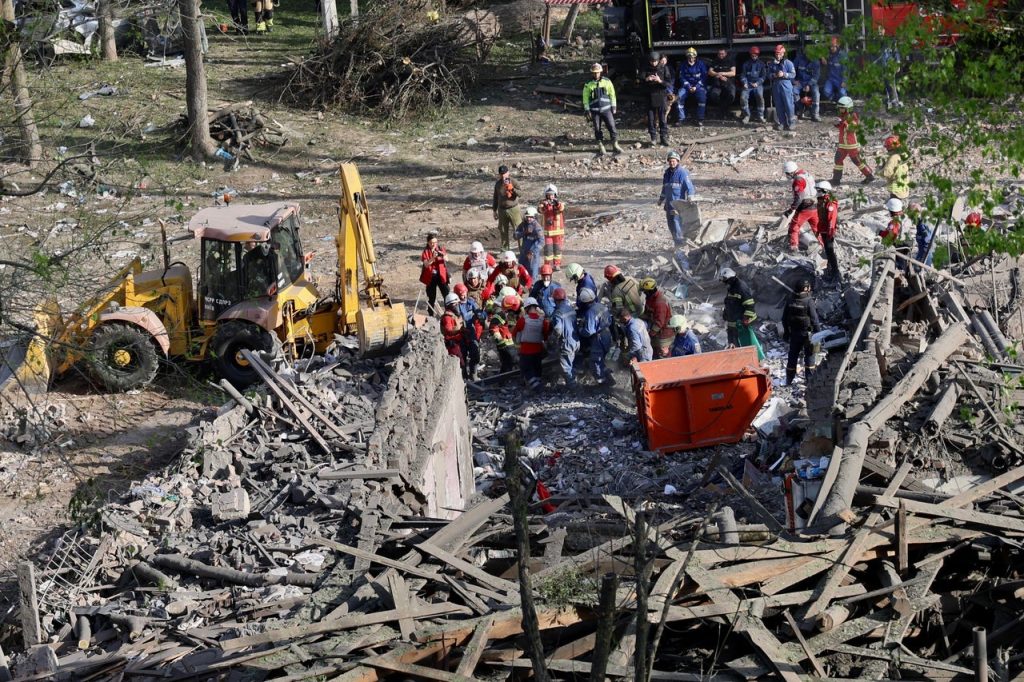Ukrainian President Volodymyr Zelenskyy is cutting short an official trip to South Africa following a deadly Russian missile strike on Kyiv early Thursday that killed at least ten people and injured more than 70 others.
Zelenskyy, who had been meeting with South African President Cyril Ramaphosa to seek broader support for Ukraine’s war effort, announced his immediate return to Kyiv via a Telegram post. “I am returning to Ukraine after our meeting in South Africa. The situation in Kyiv demands my presence,” he wrote.
The attack on Ukraine’s capital, which targeted multiple residential areas, came just hours after peace negotiations between Ukraine and Russia appeared to collapse. President Donald Trump criticized Zelenskyy during a Wednesday address, accusing the Ukrainian leader of prolonging the war by refusing to consider territorial concessions — specifically, the cession of Crimea to Russia.
“It’s been harder to deal with Zelenskyy than with Russia,” Trump said later that day.
Zelenskyy, however, has consistently drawn a firm red line against recognizing any Russian-occupied territory, including Crimea. In his remarks on Thursday, he reiterated that Ukraine had accepted a U.S.-backed ceasefire proposal 44 days earlier, but that Russian aggression had only escalated since.
“Putin shows through his actions that he does not respect peace talks,” Ukrainian Foreign Minister Andrii Sybiha posted on X (formerly Twitter). “Only strength and pressure will stop his terror.”
Russia’s latest assault involved 66 ballistic and cruise missiles, four air-launched missiles, and 145 Shahed drones, targeting Kyiv and four other regions, according to the Ukrainian Air Force. In Kyiv, emergency workers continue to search for bodies under the rubble of an apartment complex hit in the early morning hours.
Mayor Vitali Klitschko confirmed ten deaths in the capital, though earlier reports had cited nine. Ukraine’s State Emergency Service said at least 42 people have been hospitalized.
The most recent attack adds to a grim toll since Russia’s full-scale invasion began February 2022. Prime Minister Denys Shmyhal reported that more than 13,000 civilians have died, including 618 children.
Meanwhile, U.S. officials have raised concerns that the Trump administration may soon scale back its involvement in brokering peace if neither side compromises. Despite ongoing diplomatic efforts, Russia has continued its attacks in several cities — most notably, a strike in Sumy that killed over 30 civilians celebrating Palm Sunday, drone assaults in Odesa, and glide bomb attacks in Zaporizhzhia.
Russian Foreign Ministry spokeswoman Maria Zakharova accused Zelenskyy of refusing to negotiate, claiming he insists on ceasefire terms that only serve Ukraine’s interests.
As Ukraine reels from the latest wave of violence, international calls for a stronger global response continue to mount, though hope for meaningful dialogue appears increasingly faint.



